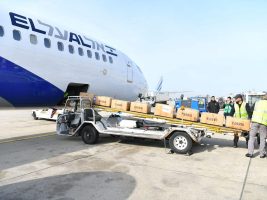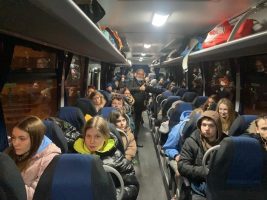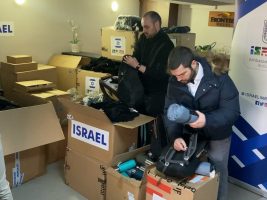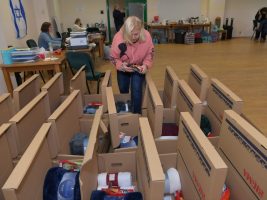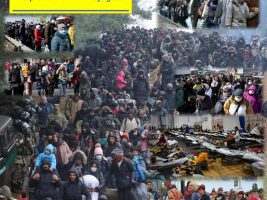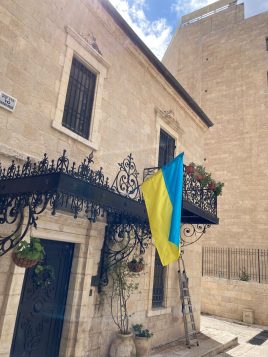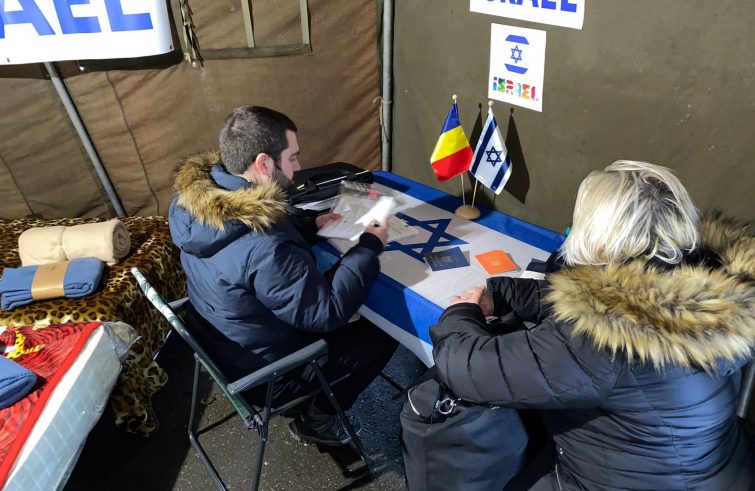
“Whoever can help to stop this tragic bloodshed must do so. It is a moral obligation”, says the Israeli ambassador to the Holy See Raphael Schutz, commenting to SIR the mediation effort of Israeli Prime Minister Naftali Bennett, who met Vladimir Putin in Moscow last Saturday. The visit was especially significant since it took place on Shabbat, Judaism’s day of rest and abstention from work. Unless breaking it saves lives – as in the case of mediating between Kiev and Moscow. After a three-hour talk with Putin, Bennet flew to Berlin to meet with Chancellor Olaf Scholz, followed by a succession of phone conversations with Ukrainian President Zelensky and key government leaders. Hardly any information on the content of the talks has been disclosed. For now, Bennett is keeping a low profile – essential to maintain continued contact. “The Pope has made every effort necessary in this situation: with prayers, heartfelt appeals and ‘non-conventional’ gestures – such as making a visit to the Russian Embassy to the Holy See.”
“Exceptional times call for exceptional measures”,
says the ambassador, thereby including Israeli diplomatic activism along these lines. “I repeat: everyone should do everything possible to save human lives. Communities of people of Ukrainian and Russian origin live side by side in Israel. It serves as an encouragement to help identify avenues of negotiation between these two peoples.”
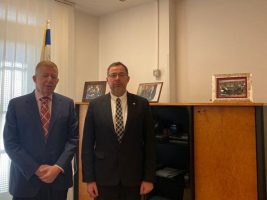
Incontro ambasciatore di Israele presso la Santa Sede, Schutz, col suo omologo ucraino Yurash Andrii (Foto Amb. Israele presso S.Sede)
Diplomatic effort. The Israeli diplomatic effort continues – hence Monday’s meeting in Rome between Ambassador Schutz and his Ukrainian counterpart Yurash Andrii. “It was a significant meeting and an opportunity to express solidarity with the brave Ukrainian people who are experiencing overwhelming suffering and grief,” the Israeli embassy tweeted. Israel has also been actively providing humanitarian assistance to Ukrainian refugees. According to the Israeli Foreign Ministry, “Israeli diplomats are working around the clock on the Ukrainian borders to assist Israeli refugees from Ukraine on their way back to Israel. Teams of diplomats at the Romanian, Polish and Hungarian borders are providing assistance to Jews fleeing Ukraine, handing out blankets, clothing items, warm meals, and thermal bags. Documents required for the prospective entry into Israel are being drawn up in cooperation with customs officers.
- Invio aiuti umanitari – (Foto Ministero Esteri Israele)
- Orfani ucraini – (Foto Ministero Esteri Israele)
- Aiuti alimentari – (Foto Ministero Esteri Israele)
- Aiuti alimentari – (Foto Ministero Esteri Israele)
The voice of Russian-speaking communities in Israel. The two Russian-speaking Catholic communities in Israel, affiliated to the Saint James Vicariate for Hebrew-speaking Catholics of the Latin Patriarchate of Jerusalem, are following the developments in Ukraine with great concern but also with great hope. Israel is the only Russian-speaking country outside the borders of the former Soviet Union, with a population of 1.5 million Jews who immigrated from Russia and Ukraine. This is also the reason for Israel’s close relations with Zelensky, who is Jewish, and especially with Putin. Two hundred thousand Jews live in Ukraine, which is one of Israel’s most important partners. Israel’s failure to adopt strong sanctions against Russia should be interpreted also in the light of the fact that Israel is keen to bring Ukrainian Jews into the country, albeit according to rigorous controls. For its part, the Israeli government was unwilling to supply Ukraine with weapons and missile defence systems, but only with field hospitals and humanitarian aid.
Fr Piotr Zelazko, Episcopal Vicar for the Hebrew-speaking Catholic community in Israel, spoke with SIR about the concerns of these two communities. The Polish-born priest has been living in Israel since 2005. “These are difficult days for our two communities – he says – one located in the north of Israel, made up of 120 people, and the other in the south comprising 60 faithful. Both communities include both Russians and Ukrainians, with many mixed families.
“They are gathered together in prayer asking for an end to violence and the gift of peace”.
Contacts with family members back in Ukraine have been ongoing since the outbreak of Russian aggression. “They are physically distant from relatives and friends, but they are close to them spiritually and in practical terms”, Father Piotr adds. “Many of our faithful have told us that their relatives and friends in Ukraine claim that they are unable to leave Ukraine because of the fighting, and they are desperate. Prayer is our means of intercession.” The Ukrainian flag has been placed on display outside some homes and churches, making their closeness more visible. Last weekend, the communities promoted a fundraising initiative for Ukrainian refugees.
A drop of peace. “We have made Pope Francis’ words in the Angelus prayer last 6 March our own,” says Fr Piotr. “The Holy Father said that in Ukraine ‘rivers of blood and tears are flowing. It is not merely a military operation, but a war, which sows death, destruction and misery. The number of victims is increasing, as are the people fleeing, especially mothers and children.’ In the light of this, we want to be prepared to welcome refugees in the event that they do arrive. As yet, we have had no instructions from our government. Should the need arise, we will be the first to open the doors of our facilities and homes.”
“We know what is happening in European countries, such as Poland, where Ukrainian refugees are being taken in,” said the vicar. “It’s a beautiful testimony and an example to be followed. Opening hearts and opening homes has now become akin to a watchword for many people. People are following the situation in Ukraine, they are analysing it and acting on it. We are seeing the awakening of consciences.”
With respect to Prime Minister Bennet’s mediation, Fr Piotr remarks: “The Russian-speaking Israelis are optimistic about Israel’s mediation efforts between Moscow and Kiev. Let us hope that Bennet will succeed in bringing the two warring parties together. No one knows how this will happen, but we trust in the Prime Minister’s capacity for dialogue. Israel’s mediation is nevertheless a drop of peace. Drops make rivers. And in the psalm we read that peace is like a river.”

